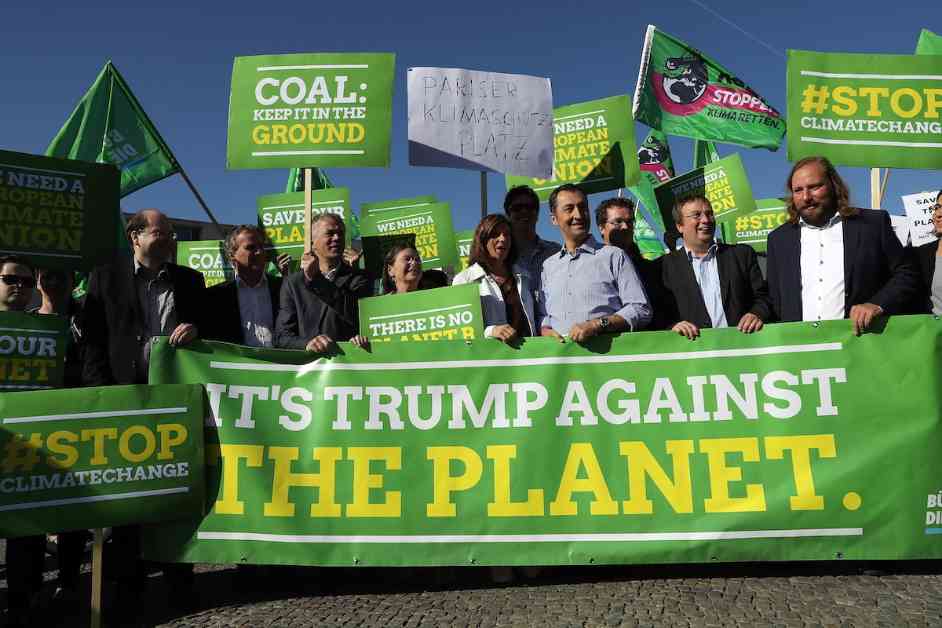The Trump Administration’s Withdrawal from Paris Agreement – Understanding the Impact
As the world grapples with the urgent need for climate action, the recent withdrawal of the United States from the Paris Agreement has sparked global concern and criticism. President Donald Trump’s decision to pull the U.S. out of the landmark climate accord in 2017, citing economic burdens on American businesses, has once again thrust this issue into the spotlight.
The Paris Agreement, adopted in 2015, aims to limit global warming to well below 2 degrees Celsius above pre-industrial levels, with a more ambitious target of 1.5 degrees Celsius. The agreement requires countries to set their own targets for reducing greenhouse gas emissions and regularly report on their progress.
Implications of the Withdrawal
President Trump’s recent executive order to withdraw from the Paris Agreement has reignited debates on climate policy and the role of the U.S. in combating climate change. Environmental organizations and activists have criticized the move, especially in light of recent climate data highlighting record-breaking temperatures and rising carbon dioxide emissions.
While the withdrawal may impact international efforts to address climate change, many countries and organizations remain committed to the goals of the Paris Agreement. The urgency of the climate crisis has prompted calls for renewed action and collaboration to mitigate its effects.
The Path Forward
Despite the challenges posed by the U.S. withdrawal, there is a growing momentum for climate action on a global scale. Experts emphasize the need for inclusive governance and community-centered solutions to address the impacts of climate change effectively.
Laurence Tubiana, CEO at European Climate Foundation, underscores the importance of centering the most affected communities in climate governance. This approach reflects a broader shift towards a more equitable and sustainable approach to climate policy.
Promoting Clean Energy
In response to the recent executive orders signed by President Trump, advocates for clean energy and sustainability have emphasized the benefits of transitioning to renewable sources. Manish Bapna, president and CEO of Natural Resources Defense Council (NRDC), highlights the economic, health, and environmental advantages of clean energy solutions.
As the world faces unprecedented challenges from climate change, the actions and policies implemented by governments and organizations will play a crucial role in shaping our collective future. The transition to a more sustainable and resilient society requires concerted efforts and a shared commitment to safeguarding the planet for future generations.
In a world where the impacts of climate change are increasingly visible, the need for decisive action has never been more urgent. As we navigate the complex landscape of environmental policy and global cooperation, it is essential to prioritize collaboration, innovation, and inclusivity in our efforts to address the climate crisis. Together, we can build a more sustainable and equitable future for all.














